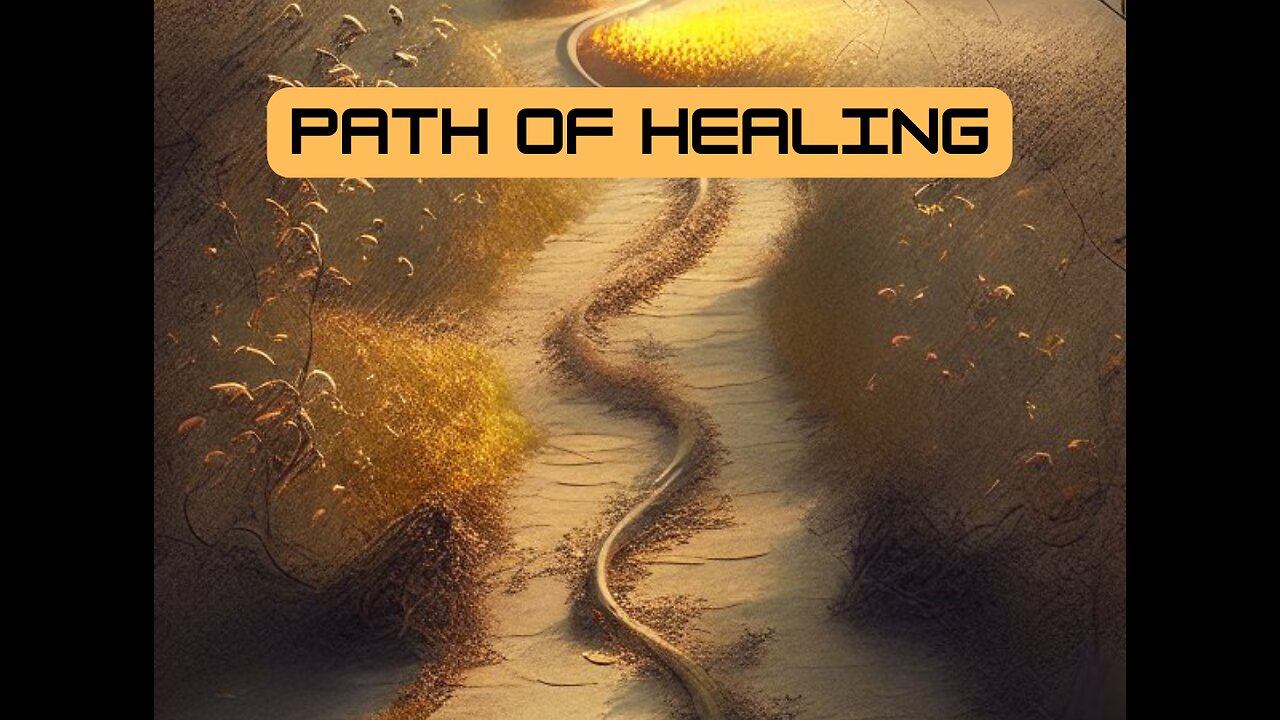Premium Only Content

3 Invitation to the Path of Healing Program
Nurturing Wholeness and Reconciliation of Unhealed Wounds
The Path of Healing, one of the transformative stages within the 7 Paths of Knowledge model, holds immense significance in the journey of self-discovery and transformation. It is a vital process that follows the awakening stage, as individuals begin to recognize the existence of unhealed wounds and embark on the journey of emotional, mental, and physical healing.
In the context of training, self-development, coaching, or company services, understanding the mindset of individuals on the Path of Healing is crucial. Recognizing the presence of unhealed wounds and providing the necessary support and guidance can be instrumental in facilitating their journey towards wholeness and well-being.
Once an individual has awakened, they may initially underestimate the magnitude of unhealed wounds that require healing. The awakening experience brings a newfound awareness and insight, but it also illuminates the unresolved pain and traumas that may have been buried within. It is through this awakening that individuals realize the necessity of addressing and healing these wounds to truly embrace personal growth and transformation.
The mindset of the Path of Healing is characterized by a willingness to confront past pain, traumas, and limiting beliefs. It involves acknowledging the existence of unhealed wounds and embracing the necessary steps towards reconciliation and growth. Individuals on this path may experience emotional turbulence, vulnerability, and a need for nurturing and support.
When interacting with individuals on the Path of Healing, it is essential to create a safe and non-judgmental space for them to explore and express their pain. Encourage them to share their experiences and emotions, allowing for catharsis and the release of suppressed feelings. Active listening, empathy, and compassion play a significant role in providing the support they need during this vulnerable period.
As facilitators, coaches, or spiritual masters, it is important to guide individuals on the Path of Healing towards appropriate healing modalities. This may involve recommending therapy, counseling, energy healing, or holistic practices that align with their unique needs and preferences. Encourage them to seek professional help when necessary and provide resources that support their healing journey.
Emphasize the importance of self-compassion and self-care during the healing process. Encourage individuals to prioritize their well-being and engage in activities that nourish their mind, body, and spirit. Support them in establishing healthy boundaries, practicing self-reflection, and cultivating self-love as they navigate the depths of their healing journey.
It is essential to remind individuals on the Path of Healing that healing is a lifelong process and that progress may occur in cycles. They may experience moments of setback or regression, and that is perfectly normal. Encourage patience and perseverance as they navigate the complexities of their healing journey, reassuring them that each step forward contributes to their overall well-being.
In summary, the Path of Healing is a transformative stage in the 7 Paths of Knowledge model, following the awakening stage. It requires acknowledging and reconciling unhealed wounds to facilitate personal growth and transformation. Provide a safe and supportive environment, recommend appropriate healing modalities, and encourage self-compassion and self-care. By doing so, we can assist individuals on their healing journey, fostering wholeness, and nurturing their overall well-being.
-
 LIVE
LIVE
Lofi Girl
2 years agoSynthwave Radio 🌌 - beats to chill/game to
258 watching -
 54:47
54:47
Side Scrollers Podcast
1 day agoSide Scroller Presents KING OF THE KART | MASSIVE MARIO KART TOURNAMENT
102K6 -
 2:39:02
2:39:02
The Pascal Show
13 hours ago'HE'S THE DEVIL!' Former Mother In Law Breaks Silence On Jake Haro & Emmanuel Haro Case
1.03K1 -
 4:47:50
4:47:50
The Why Files
2 days agoCOMPILATION: UFOs and Aliens Vol.2 | They are NOT our friends
37.9K36 -
 5:30:10
5:30:10
SpartakusLIVE
8 hours ago#1 Verdansk Sniper gets HACCUSATIONS because of INSANE Headshots
45.6K4 -
 46:18
46:18
SB Mowing
2 days agoShe was LOSING HOPE but this SURPRISE CHANGED EVERYTHING
23.1K40 -
 LIVE
LIVE
ItsLancOfficial
7 hours agoWE LIVE 🔴WE LIVE 🔴 SUNDAY SUNDAYS!!!!!!! TARKOV
512 watching -
 4:09:32
4:09:32
EricJohnPizzaArtist
6 days agoAwesome Sauce PIZZA ART LIVE Ep. #59: Are You Ready for some FOOTBALL with GameOn!
21.2K7 -
 1:21:43
1:21:43
Jake Shields' Fight Back Podcast
13 hours agoJake Shields and Paul Miller!
56.2K101 -
 1:20:41
1:20:41
TRAGIKxGHOST
4 hours agoTrying to get SCARED tonight! | Are You SCARED!? | Screams Beyond Midnight | Grab a Snack
16.5K2